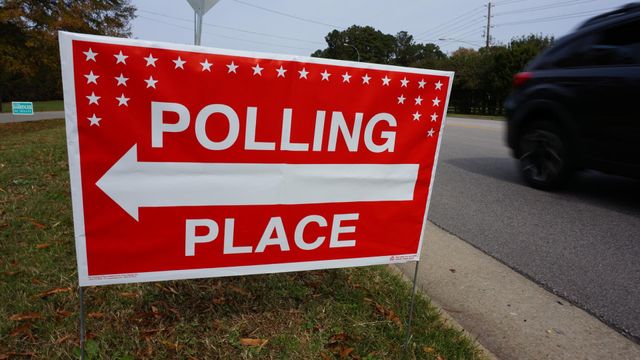4th Circuit says NC Republicans can't defend voter ID lawsuit
Attorney General Josh Stein's defense will be fine, despite a partisan split on voter ID, circuit judges decide.
Posted — UpdatedA majority of circuit judges said Attorney General Josh Stein, who has been defending legal challenges to the state's 2018 voter ID law, can handle the job. House Speaker Tim Moore and Senate President Pro Tem Phil Berger argued that Stein, a Democrat who they don't think has defended voter ID laws vigorously enough, won't mount a good defense and that they should get to step in.
The state legislature passed a law to that effect several years ago, meant to give the General Assembly's top leaders standing in lawsuits targeting the laws they pass. But the 4th Circuit judges said Monday that lawmakers can intervene in this case only if a federal court finds the attorney general "is inadequately representing that same interest, in dereliction of his statutory duties – a finding that would be 'extraordinary.'"
"North Carolina’s Attorney General ... (is) actively defending [the law's] constitutionality in both state and federal court," Harris wrote.
The 4th Circuit sided with the lower district court in denying Moore and Berger standing, but it essentially reversed the decision that a three-judge panel came to last year. The plaintiffs in the case, the state NAACP and others, had asked the full circuit to review that panel's decision.
Sen. Danny Britt, R-Robeson, who Berger's office put forward Monday when asked for comment, said the 4th Circuit's liberal majority overruled the panel.
"The legislature has zero confidence in Josh Stein, who opposes voter ID, to defend the law in court," Britt said in a written statement.
“We intend to be very public in our monitoring of Josh Stein’s ‘defense’ of this case over the next year, especially considering his office’s near-silence during the recent state voter ID trial," Britt said. "An intern could have mounted a more effective defense than Stein’s office did this spring."
That state-level trial is a second lawsuit targeting the photo ID requirement, and it was argued in April. The judges in that case have not yet ruled. The case is separate but delves into similar issues.
Asked for response to Britt's comment, Stein's office kept it brief Monday evening.
"We are reviewing the decision," spokeswoman Laura Brewer said via email. "Our office will continue to vigorously defend the state in every matter we handle in accordance with the law."
Judges at the federal level have repeatedly found Stein's defense to be strong enough. Among other things, he opposed a preliminary injunction seeking to block implementation of the voter ID law, and his office has argued in court filings that the law "does not deny, abridge, or significantly burden any voter’s right to vote."
The federal case is slated for trial in January.
"We look forward to bringing our full case to trial in 2022 as we continue to challenge all racially discriminatory impediments to the right to vote in our state amid the rapidly unfolding national fight for our democracy," state NAACP President Rev. T Anthony Spearman said in a statement. "We know that, when we fight for our sacred rights, we will ultimately see victory."
Although Stein's office handles the defense, Gov. Roy Cooper is the named defendant in the lawsuit. He has vocally opposed voter ID, vetoing a law implementing the rules at issue in this case and rallying against an underlying amendment North Carolina voters added to the state constitution in 2018.
GOP lawmakers have pointed to this, along with problems they see in Stein's defense, in court filings.
"With defendants like these, this case hardly needs plaintiffs," they wrote in a 2019 motion.
North Carolina NAACP President Anthony Spearman said after the decision was announced that the legislature isn't entitled to enter the case "when there is an Attorney General elected by the people and assigned by the Constitution to perform this duty."
We look forward to bringing our full case to trial in 2022 as we continue to challenge all racially discriminatory impediments to the right to vote in our state amid the rapidly unfolding national fight for our democracy," Spearman said in an emailed statement.
• Credits
Copyright 2024 by Capitol Broadcasting Company. All rights reserved. This material may not be published, broadcast, rewritten or redistributed.





